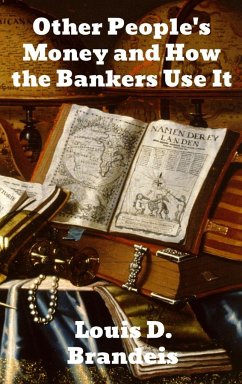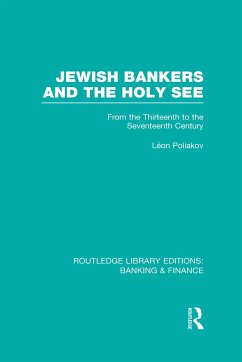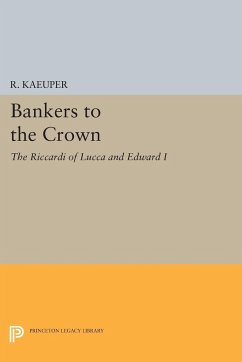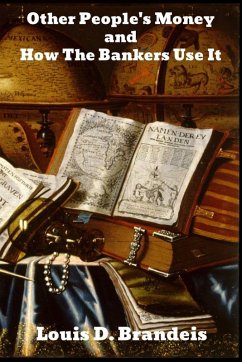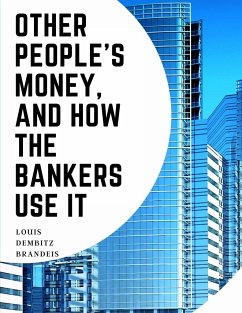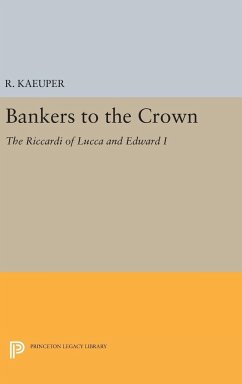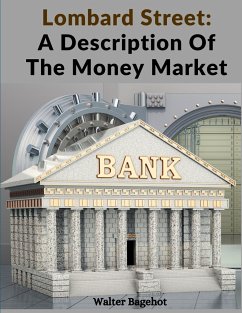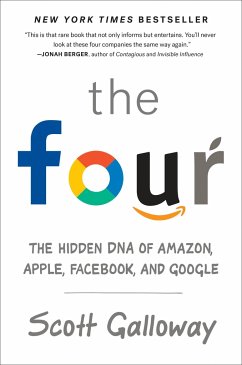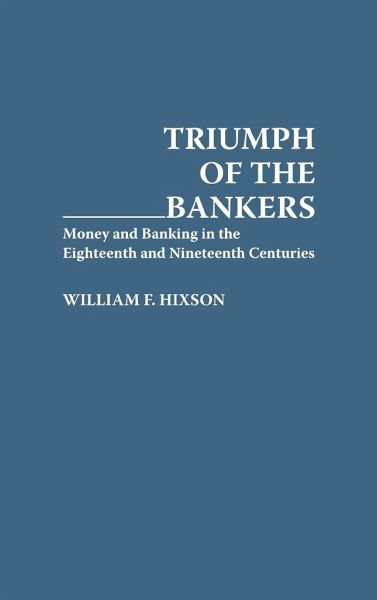
Triumph of the Bankers
Money and Banking in the Eighteenth and Nineteenth Centuries
Versandkostenfrei!
Versandfertig in 1-2 Wochen
78,99 €
inkl. MwSt.

PAYBACK Punkte
39 °P sammeln!
In this sure-to-be-controversial history of money and banking, Hixson examines the historical and resulting present-day deficiencies of the U.S. monetary and banking system. His study reveals that in a whole series of historical cases over the eighteenth and nineteenth centuries faulty economic principles were applied to the developing system. His bold conclusions include suggestions that: commercial banks should be required to maintain 100 percent reserves on all demand-deposit accounts and thus be denied the present privilege of creating credit-money; and the federal government should be the...
In this sure-to-be-controversial history of money and banking, Hixson examines the historical and resulting present-day deficiencies of the U.S. monetary and banking system. His study reveals that in a whole series of historical cases over the eighteenth and nineteenth centuries faulty economic principles were applied to the developing system. His bold conclusions include suggestions that: commercial banks should be required to maintain 100 percent reserves on all demand-deposit accounts and thus be denied the present privilege of creating credit-money; and the federal government should be the sole creator of money in the economy. As in his previous book, Hixson challenges generally accepted historical and economic wisdom, making this a significant contribution to the literature.



